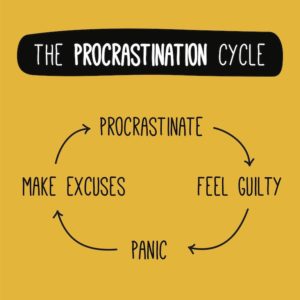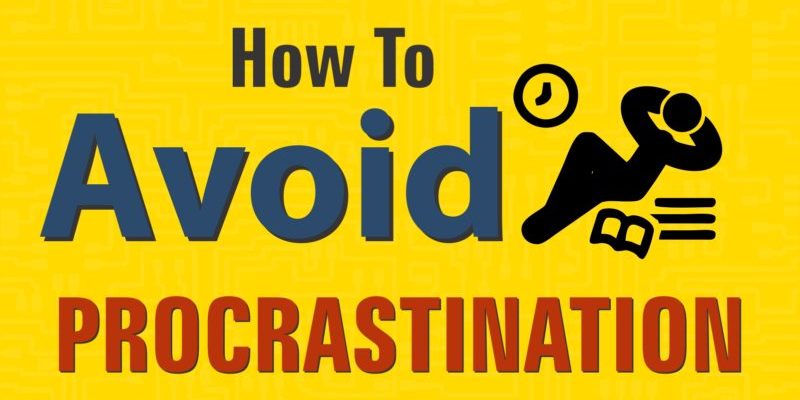
Seven useful strategies to stop procrastinating on your job
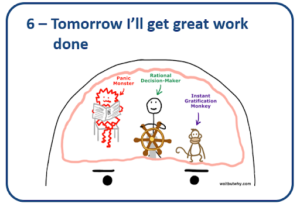
Strategies to stop procrastinating on your job. The momentum of continues action fuels motivation. Procrastination kills motivation.
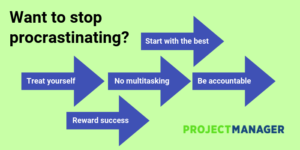
Most people procrastinate one or other thing at some point in their profession. But most of them don’t realise that they have been doing it until someone points it out, or when they finally get in trouble for it.
Procrastination has never been the direct cause of someone’s failure at work, but the resulting impact from it may be.
- The lack of any planning or poor planning may cause a project to be half done,
- Pulling an all-nighter to complete the job may be bad for health,
- Or it could lead to issues within the team members assigned to the job with you.
It’s a sort of delay, which creates or leads to all kinds of problems, and you end up losing the trust of people in you to finish the work. Why should you risk facing a lion on a prowl, when you can easily capture it and put it in a cage?
In this blog, we look at seven ways to stop procrastinating on the job.
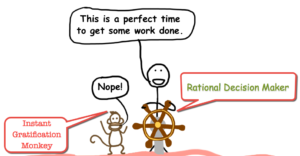
Seven ways to stop procrastinating on your job

- The self-regulating method
The human brain tends to lose interest if they work over long periods on a task without any reward. This need for instant pleasure gets manipulated in video games. For example, crossing a pit stop lets you level up, giving you an immediate bonus, which is a reward for staying on in the game. So, you never procrastinate in games.
You can implement that self-regulating method in your work as well. Use clocks to work for a specified period, and then reward yourself with a break to refresh your mind and start again.
- Realising the impacts of procrastinating
Another way to stop procrastinating is to dwell on the effect when you delay. Procrastination can result in job loss or large financial losses and even lead to you failing to acquire future opportunities. If you stick this in your mind, it may hold you back from delaying your tasks the next time you are about to procrastinate.
You can set milestones for your work and ensure you do things a bit at a time, rather than lumping up in one overwhelming shot all at once.
- Enjoy our achieve
It feels great to accomplish something, and there is no reason not to break that feeling down in smaller ‘bites’. Create a list of those things you should be doing and set deadlines for it. When you complete doing them, scratch them off the list. Now, doesn’t that feel good?
Through this, you will always remember your deadlines. Over time, you will learn how to be more productive, work faster, or how to get better results.
- Deal With It When It’s Small
Many people focus on bigger tasks and leave smaller ones to complete later, which leads to procrastination. These small tasks pile up eventually and don’t get completed on time. In essence, it’s these little things that could get done and settled fast, or right after the instructions are delivered.
But sometimes such tasks are overlooked, considering it as small matter until it grows too big to be completed on time. So, don’t leave it unattended if you can, no matter how unimportant you think it is.
- Do not work until you feel tired
Human psychology suggests that if you are tired, you will not have anything pending in your head. Then, your mind wanders off course from the task at hand. In short, you can get distracted very quickly when you are exhausted.
Follow the signs your body gives and start each new task again if possible. Taking a small break with non-taxing activities like reading a newspaper or listening to light music while relishing a cup of coffee can do wonders to revitalise your energy bar.
- Use the power of motivation
Employees often fail to remember the basis of their work, which could lead them to procrastination. Your business has a role, and your job has a purpose. Do you reinvent your personal objectives with the task at hand? If you can do it, then you are taking the right steps to strengthen yourself.
You find it challenging to get up in the morning to get to work, then something is amiss. When it is hard even to get started, procrastinating is the next stage. A lack of zeal at work may need some reflection on your part.
You may need to question your job role in the organisation if you need some form of motivation as in a new position, a new project or a new manager. Restructure your engagement and job responsibilities to avoid procrastination.
- Shun off temptations
Temptations are real obstacles, and they can take your attention away from work. Everyone has their own list of sinful temptations including TV, a game, a phone call, or a texting partner, Facebook, and so on. Identifying and keeping yourself away from these things will help you to overcome procrastination on the job.
You may opt to cut yourself off from the Internet when you are designing, writing or sketching. Alternatively, you can find a quiet place for yourself to get away from physical disturbances offline like noise, your children or from phone calls. It depends on your willpower to say no to ‘I’ll do it tomorrow’.
